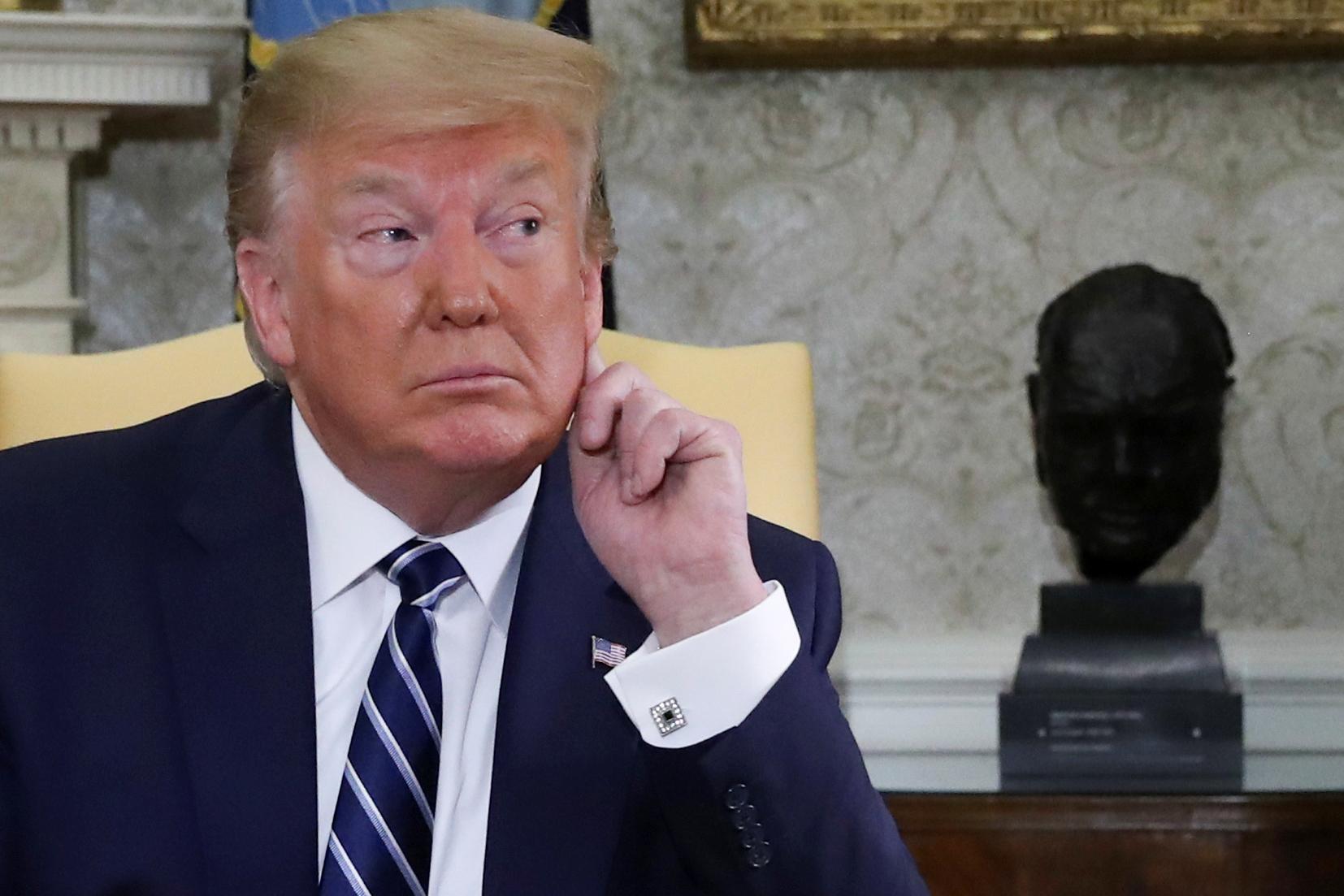Trump is losing interest in Venezuela because it is no longer an ‘easy win’, sources say
President believes national security adviser John Bolton ‘got played’ by key Maduro officials, according to sources

Donald Trump is losing interest in Venezuela after a bid to remove president Nicolás Maduro failed and military officials reneged on promises to switch sides.
Mr Trump had viewed the prospect of a US-backed toppling of Mr Maduro as an “easy win” at a time when other foreign-policy initiatives had stalled, according to White House sources.
A former administration official, who spoke on the condition of anonymity, told the Washington Post that Mr Trump had always thought of Venezuela as “low-hanging fruit” on which he “could get a win and tout it as a major foreign policy victory”.
“Five or six months later… it's not coming together,” they added.
Two other senior officials said that Mr Trump believed that national security adviser John Bolton and his director for Latin American policy, Mauricio Claver-Carone, “got played” by both the opposition and key Maduro officials.
But other officials disputed these reports. National Security Council spokesman Garrett Marquis said: “Not only is this patently false but once more the Washington Post traffics in fairy tales rather than the truth.”
“The United States never said that its effort in Venezuela would be limited to one round,” another senior official said. “The administration's maximum-pressure policy relies upon consistency and discipline to achieve the ultimate goal.”
In January, when Juan Guaidó declared himself interim president of Venezuela and urged the military to turn against Mr Maduro, the US was quick to declare its support. It imposed sanctions on Venezuelan government officials sending food aid to the country and pressed allies to recognise Mr Guaidó as the country’s rightful leader.
However, in April, a US-backed bid by the Venezuelan opposition to remove Maduro failed. Senior Venezuelan government and military officials reneged on promises to switch sides and instead stood by the president.
As Venezuela becomes more ungovernable with sanctions having cut off much of its income, the fatigue afflicting many opponents of Mr Maduro has also begun affecting the regime. That will theoretically encourage negotiations over elections in which Mr Maduro does not participate, although it may not ensure his immediate departure from the country, as the US has advocated.
Since early last month, Mr Trump has rarely spoken publicly about Venezuela or his ”all options“ promise to use military force if necessary to achieve US goals there.
In a closed-door meeting on Wednesday to campaign donors at his Doral golf club in Florida, Mr Trump did not mention Venezuela, one person in attendance said.
The meeting was held just miles from where Mr Trump delivered a speech to Venezuelan and Cuban expatriates in February warning that those who continued to support Mr Maduro would “lose everything”.
Mr Trump's Twitter account has also largely gone silent on the subject.
In one exception, Trump tweeted early this month that “Russia has informed us that they have removed most of their people from Venezuela”. After Russia denied it, saying there had been no such action or communication with the administration, it was never mentioned again.
In May, Mr Trump called Vladimir Putin to tell him that Moscow’s support for Mr Maduro had to stop. After the call, the US president said Mr Putin had assured him that Russia was “not looking at all to get involved in Venezuela, other than he'd like to see something positive happen”.
Early last week, responding to shouted questions as he prepared to board Marine One on the White House South Lawn, Mr Trump blamed the ongoing Venezuela crisis on his predecessor and threw in a dig at his 2020 electoral competition. “It's been brewing for many years,” he said. “It really started, in the worst form, during the Biden-Obama administration.”
Asked whether he would consider giving special immigration status to Venezuelans fleeing their country, Mr Trump said that “we're looking at that very strongly”.
Later in the week, he met for more than two hours with top officials from Major League Baseball, who asked him to reconsider his cancellation of a deal they made with Cuba to bring its baseball players to the US.
The Trump administration also blames Cuba for supporting Mr Maduro, and during the meeting Mr Trump tried to enlist baseball executives to deliver two messages to leaders in Havana. He said he would be happy to make a deal on Cuban baseball players if they would tell Cuba to get out of Venezuela.

Mr Trump also suggested he would be willing to meet directly with Cuban officials under the right conditions. “The president gave MLB the same message he's given to everyone – the Cubans need to change their behaviour, in Venezuela and internally,” one senior administration official said.
While Mr Trump appears to have withdrawn from the fray, Mr Bolton tweets about Venezuela more than on any other foreign policy issue. “The United States will continue to stand firmly in support of ending Maduro's repression,” he wrote on Tuesday.
In Miami, vice president Mike Pence spoke to Venezuelan Americans to salute the US Navy ship Comfort embarking to Latin America, which expects to treat Venezuelan refugees.
Mr Pence deflected questions about US military intervention, saying the administration's objective was “to see democracy and the rule of law restored in Venezuela so Venezuelans can go home to a free nation”.
Washington Post
Join our commenting forum
Join thought-provoking conversations, follow other Independent readers and see their replies
Comments
Bookmark popover
Removed from bookmarks